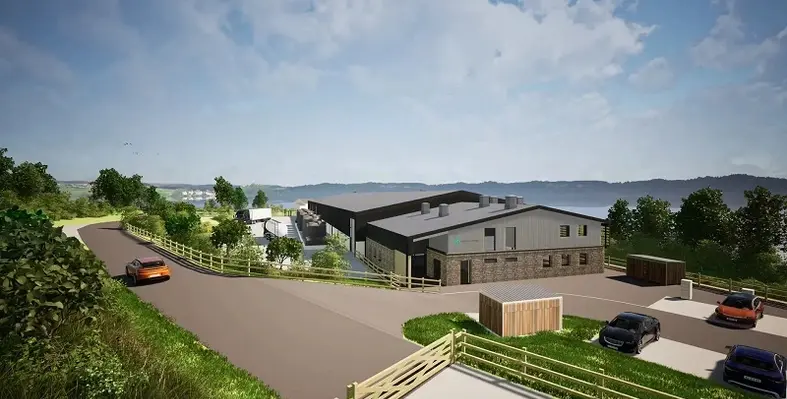
Cornish Lithium has been granted planning permission to build the UK’s first commercial lithium production facility in Cornwall.
The facility, which will be located at the Cross Lanes Lithium Project site near Chacewater, will enable the company to implement multiple phases of testing and enhancements, with a long-term aim of achieving full commercial production at the site.
Phase One of the project will involve drilling and testing two 2,000-metre-deep geothermal wells which will build of successful exploration drilling at the site that was completed in 2023. Lithium-rich geothermal waters will be extracted from the first well using Direct Lithium Extraction (DLE) technology. Once the lithium has been extracted, the water will be returned underground via the second well.
These wells will allow the company to access the potential of harnessing heat from the same geothermal waters to provide heating for local houses and businesses.
In Phase Two, a temporary demonstration plant will be constructed and operated to validate the production of lithium compounds at the Cross Lanes site. This phase will evaluate the opportunity to provide samples for battery and electric car manufacturers. Following successful testing, Cornish Lithium intents to construct a commercial plant.
With planning permission now granted, work is expected to begin on the site this spring.
Cornish Lithium Founder, CEO and Interim Chairman, Jeremy Wrathall, said, “The approval of our planning application to build the UK’s first commercial geothermal lithium production facility at Cross Lanes near Chacewater is fantastic news and a key milestone in our efforts to produce a domestic source of lithium from geothermal waters that were first identified in Cornwall in 1864.
“We will now finalise detailed designs for that demonstration plant, underpinned by a strong commitment to minimising our impact on the environment. We will also continue to proactively consult and engage with stakeholders, including local communities, authorities and businesses as the project progresses to commercial production in order to support economic growth in the region and beyond.”
